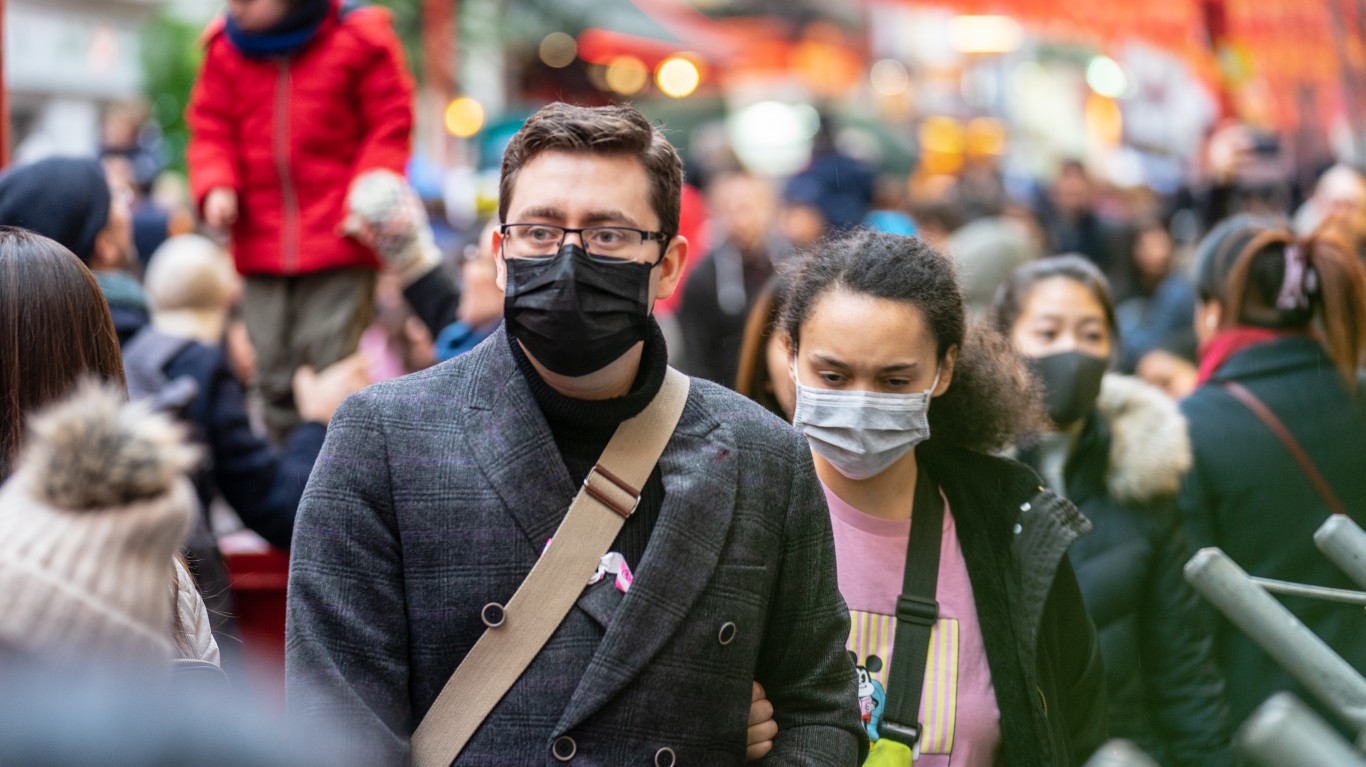
As of early Tuesday morning, there have been 4,743 confirmed cases of coronavirus infection in the United States, with 80 new cases since Monday. More than 96% of the reported cases are still active, while 74 patients have recovered and 93 Americans have died from the infection.
State and local governments have begun shutting down public places like restaurants, bars, theaters and schools, among others, where crowds could gather. This is not something that many Americans have ever experienced before. It’s a natural disaster of a different order of magnitude. The number of families left without power or water following a flood or earthquake may be large, but it is limited. An infectious disease like COVID-19 threatens every American.
Consumer sentiment tracker Morning Consult on Monday published its latest results of a survey of about 2,200 U.S. adults regarding their concerns over the coronavirus epidemic that is spreading across the country.
The firm reported that 81% of Americans are concerned about the spreading of COVID-19 across the country. By party affiliation, 89% of Democrats, 79% of Republicans and 75% of Independents say they are concerned. When the firm completed its initial survey in late January, worries were already “quite high” at 74%.
Just 5% of U.S. adults approve of the president’s handling of the coronavirus epidemic in the United States. Along party lines, 73% of Republicans approve, while 53% of Democrats disapprove.
The president also earned the lowest approval rating (5%) among U.S. adults for his handling of the pandemic. On March 9, Trump’s approval rating was a net negative 1%. The U.S. Centers for Disease Control and Prevention (CDC) was rated best with a net approval of 59%, followed by the World Health Organization (WHO) at 54%. The approval rating for the U.S. Congress rose from 6% on March 14 to 23% on March 16, the sharpest increase among all leadership individuals and groups.
Well over three-quarters of all Americans (82%) are concerned about the impact of the infection on the U.S. economy. A Morning Consult survey completed last week revealed that 70% of U.S. adults are very or somewhat concerned about the U.S. economy falling into a recession. More than three-quarters of Democrats (78%), 67% of Republicans and 65% of Independents are very or somewhat concerned about a looming recession.
Among U.S. adults earning more than $100,000 a year, 86% are concerned about the effect of COVID-19 on the U.S. economy and 84% are worried about the effect on the global economy. Some 83% are worried about the impact on U.S. companies and 81% are worried about their local economy. Since March 1, concern about the impact of the coronavirus pandemic on the Chinese economy has dropped from 74% to 60%.
More than half of Americans said that they are less likely to travel within Asia (60%), travel within Europe (58%), travel outside the United States (57%) or stay overnight in a hotel outside the United States (54%). Exactly half said they are less likely to travel for spring break, up from 36% just a week earlier. Under half are less likely to stay in a U.S. hotel (44%) or to travel within the United States (44%).
Nearly half (48%) of Americans say they would support temporary federally imposed restrictions on public events. More than twice as many (48%) say they’re less likely to dine in a restaurant than they were two weeks ago (19%).
Want to Retire Early? Start Here (Sponsor)
Want retirement to come a few years earlier than you’d planned? Or are you ready to retire now, but want an extra set of eyes on your finances?
Now you can speak with up to 3 financial experts in your area for FREE. By simply clicking here you can begin to match with financial professionals who can help you build your plan to retire early. And the best part? The first conversation with them is free.
Click here to match with up to 3 financial pros who would be excited to help you make financial decisions.
Thank you for reading! Have some feedback for us?
Contact the 24/7 Wall St. editorial team.


